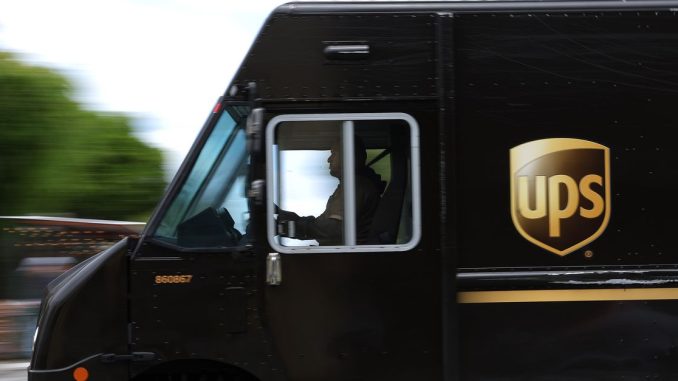
UPS employees who are represented by the Teamsters voted overwhelmingly on Friday to authorize a nationwide strike that could have far-reaching implications for workers and the economy.
The union said Friday that 97% of workers are in favor of walking off the job if they don’t reach a satisfactory deal with the shipping giant by July 31, when the current contracts expire. The vote does not guarantee there will be a work stoppage, but it gives Teamsters leadership the green light to declare one if they see fit.
In May, the union and UPS began negotiating a new five-year agreement that would set pay and working conditions for more than 300,000 UPS drivers, warehouse workers and other employees. The two sides have reached some tentative agreements on certain points, but much work remains before a contract can be finalized.
If they can’t reach a deal by August, the country could see the largest U.S. strike ever against a single employer, based on the number of workers involved.
Teamsters President Sean O’Brien said in a statement that the strike authorization vote showed UPS workers were “united and determined.”
“The strongest leverage our members have is their labor and they are prepared to withhold it to ensure UPS acts accordingly,” O’Brien said.
UPS called the authorization a “normal” step in the negotiating process.
“The results do not mean a strike is imminent and do not impact our current business operations in any way,” the company said. “We continue to make progress on key issues and remain confident that we will reach an agreement that provides wins for our employees, the Teamsters, our company and our customers.”
“The UPS-Teamsters contract is the largest of its kind in the U.S. private sector. The quality of the deal can affect working conditions throughout the logistics sector and beyond.”
UPS has said it’s confident it can come to an agreement and avoid a work stoppage. On Wednesday, the company said it had reached an accord with the Teamsters on addressing heat hazards in delivery trucks, including putting air conditioning in all new small-package vehicles starting next year. Enhancing heat safety was a top priority for the union.
But other critical issues have not been settled, such as the starting pay for workers and what’s been called a “two-tier” employment system. A previous UPS-Teamsters contract allowed for a junior class of drivers who make less money than more senior drivers for doing the same work. Many members want the tier eliminated.
The negotiations between UPS and the Teamsters generally have sweeping ramifications. UPS plays a major role in the flow of U.S. commerce, so a work stoppage would affect all kinds of businesses as well as the broader economy.
But the UPS-Teamsters contract is also the largest of its kind in the U.S. private sector. The quality of the deal can affect working conditions throughout the logistics sector and beyond, and set a marker for negotiations at other companies.
As he ran for the union’s presidency in 2021, O’Brien campaigned largely on taking on UPS and improving the union’s deal with the shipper ― one of the reasons many industry observers believe a strike this year is more likely than in past negotiating cycles.
O’Brien has tweeted throughout the negotiations, and said earlier this week that he was “glad UPS finally came to their senses” and agree to stipulations on heat. But he noted that there were a “lot of big ticket items left to handle.”
“The goal remains the same: improve & build upon the prior day each day until we get the best contract ever,” O’Brien said.
The last UPS strike occurred in 1997 and lasted 15 days.
This story has been updated with comment from UPS.


Be the first to comment